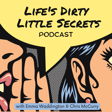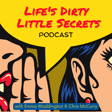
Secret #50: Happy High Achievers with Dr. Mary Anderson
Achieve more while living joyfully—it's possible! In this insightful episode, Dr. Mary Anderson, a clinical psychologist and author, discusses the transformative concept of being a "Happy High Achiever." Dr. Anderson explores how the relentless pursuit of excellence can often entangle individuals in anxiety and stress and offers cognitive-behavioral strategies to rewrite this paradigm.
Listeners will learn to redefine success by focusing on values-based goals rather than perfectionistic outcomes. Dr. Anderson introduces the SELF acronym—sleep, exercise, look forward, and fuel—as the foundation for essential self-care, aimed at maintaining energy and well-being alongside achievement.
This episode also highlights the power of positive self-talk, encouraging a shift in focus from cognitive distortions to constructive thoughts. Dr. Anderson's insights help listeners navigate societal pressures, promoting mental and emotional health without losing their competitive edge.
Tune in to explore a roadmap for sustainable success, equipping you with the tools to excel in professional and personal realms while prioritizing mental health and happiness.
Highlights:
- Happy High Achievers: Eight Essentials to Manage Stress and Energize for Success
- Overcoming Social Media Pressure in High Achievement
- Implementing Self-Care in Daily Life
- Shifting from Outcome Focus to Process Orientation
- The SELF Care Fundamentals: Science-Backed Approaches for Sustained High Performance

